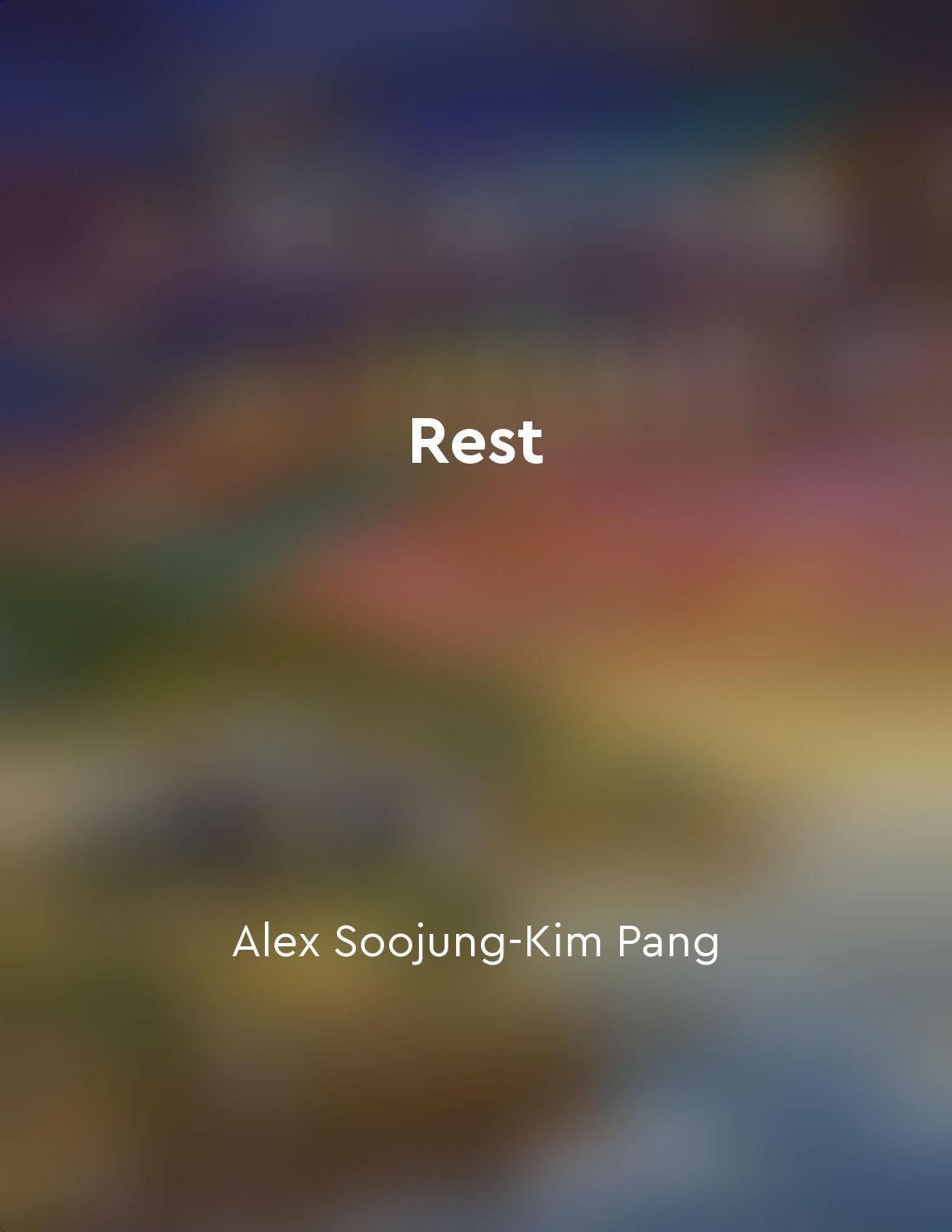Audio available in app
Multitasking reduces the quality of rest from "summary" of Rest by Alex Soojung-Kim Pang
In our hyperconnected world, multitasking is often seen as a valuable skill. We pride ourselves on our ability to juggle multiple tasks at once, believing that it makes us more efficient and productive. However, what many people fail to realize is that multitasking actually comes at a cost - specifically, the quality of our rest. When we constantly switch between tasks, our brains never have a chance to fully relax and recharge. Instead of allowing ourselves to enter a state of deep rest, we keep our minds in a state of constant activity. This can prevent us from achieving the level of restorative rest that our bodies and minds desperately need. Research has shown that multitasking can have a negative impact on our cognitive abilities, memory, and overall well-being. When we try to do too much at once, we are more likely to make mistakes, feel stressed, and experience burnout. Our brains simply aren't designed to handle the constant bombardment of information that comes with multitasking. By focusing on one task at a time and allowing ourselves to fully immerse in it, we can give our brains the opportunity to rest and recuperate. This focused attention not only improves our performance but also enhances the quality of our rest. When we allow ourselves to fully engage with a task, we enter a state of flow where time seems to fly by and our worries melt away.- It can be challenging to slow down and give ourselves permission to rest. However, by recognizing the detrimental effects of multitasking on our rest, we can start to prioritize quality over quantity. Rest is not a luxury - it is a necessity for our physical, mental, and emotional well-being. By embracing a more mindful approach to our work and leisure activities, we can improve the quality of our rest and ultimately lead happier, more fulfilling lives.


